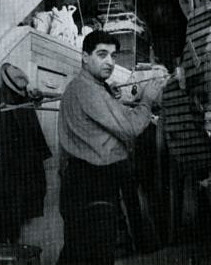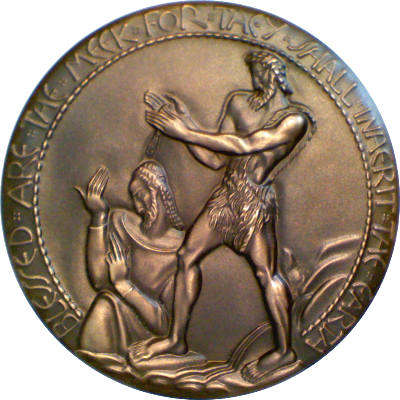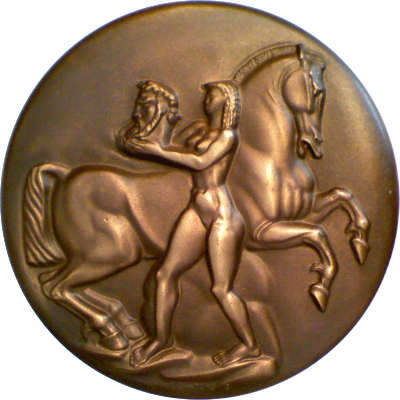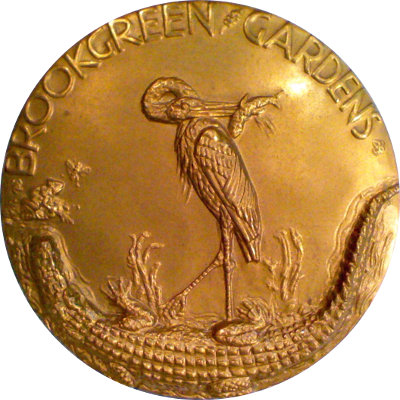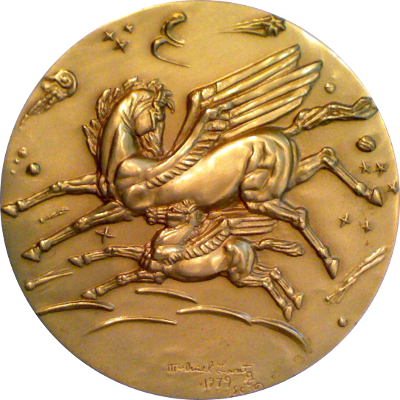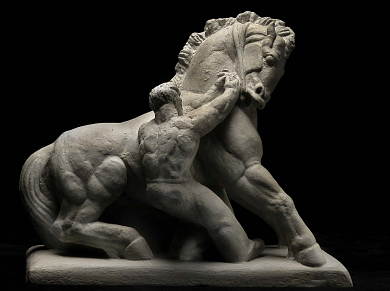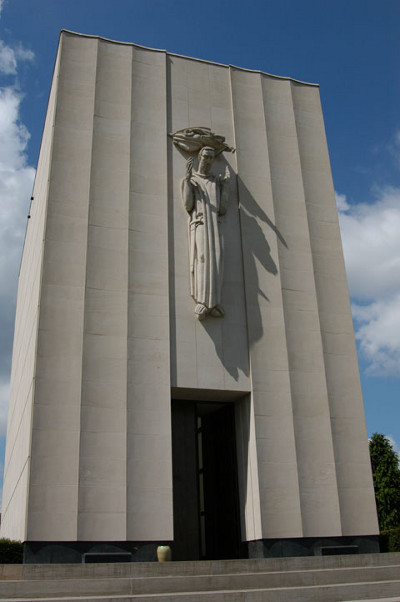Michael Lantz, born "Lanza," began modeling clay sculptures while in high school in New York. He studied under Robert Aitken at the National Academy of Design from 1924 to 1926 and worked in the studio of Lee Lawrie from 1925 to 1935, rising from floor sweeper in the beginning to Lawrie's assistant at the end. While working, he attended night classes at the Beaux-Arts Institute of Design from 1926 to 1931. During the 1930s, he was employed as an instructor in sculpture in the Adult Education Department in New Rochelle, New York, under the Works Projects Administration (WPA). In 1938, while working at the WPA, he won a $45,600 commission to create two statues for the Federal Trade Commission Building in Washington, D.C. 247 artists entered the anonymous competition organized by the Department of the Treasury. The models that Lantz submitted for the competition are now in the collections of the Smithsonian American Art Museum.
Lantz created other sculptures for buildings and sites across the United States and Europe, including a statue of St. Nabor for the Lorraine American Cemetery and Memorial near St. Avold, France. He also designed commemorative and historical medals and seals, including a copy of his Blessed Are the Meek medal from the Society of Medalists series in the Smithsonian American Art Museum. He created the Bronze Medallion of the City of New York, a medal awarded by the mayor of New York City to outstanding civilians. Some of his medallic works were used as architectural elements in the Nations of the Pan American Health Organization building in Washington D.C.. Large round, medal-like bronze plaques decorate the facade of that building.
In 1951 Lantz was elected into the National Academy of Design as an Associate member and became a full Academician in 1954. He was a member of the National Sculpture Society, where he was editor of its publication, the Sculpture Review, from 1955 to 1957 and 1973 to 1984, and served as its president from 1970 to 1973. He was awarded the Saltus Award in 1968.
Michael Lantz died of a stroke at age 80 in 1988 in New London, Connecticut.
